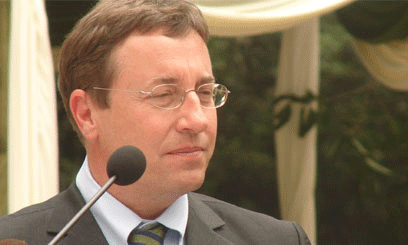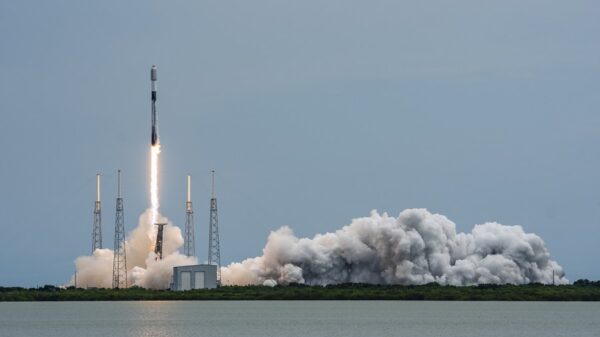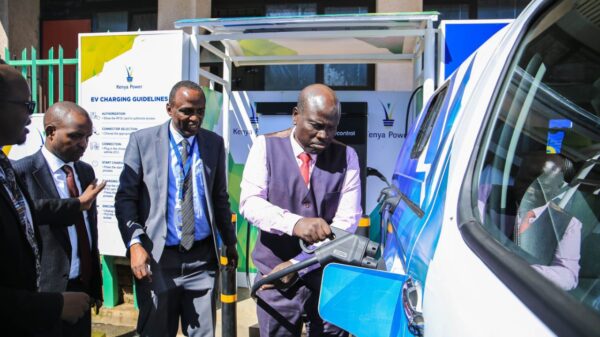 NAIROBI, Kenya, Feb 13 – The United Nations Environment Programme (UNEP) is advising against plans by Kenya to set up a nuclear power plant, and is instead urging the government to first explore other available sources of renewable energy.
NAIROBI, Kenya, Feb 13 – The United Nations Environment Programme (UNEP) is advising against plans by Kenya to set up a nuclear power plant, and is instead urging the government to first explore other available sources of renewable energy.
UNEP Executive Director Achim Steiner pointed out on Monday that the country has massive potential for clean energy which, if harnessed, would be enough to meet its power requirements for its growing economy.
“Given the geothermal, wind and solar potential, I would be surprised if Kenya in the next few years would find it either economically or from a technology point of view preferable to vote for nuclear energy over renewable energy,” he argued.
The government has been considering investing in a nuclear power plant over the next few years with initial estimates showing that a 1,000 Megawatt facility would cost the country approximately $1 billion.
Its keenness to invest in this project, which is expected to help the country reduce its over reliance on hydropower, has resulted in the formation of a Nuclear Electricity Project Committee that is mandated to spearhead and fast track the process.
However, Steiner cautioned that before the government settles on the nuclear option, it should subject it to rigorous economic, environmental and social assessment.
“On all three fronts, you get very different outcomes on choosing different technologies. When you look at this option, you not only have to factor in the cost of construction and commissioning a plant, but you are also committing the next 20 to 30 generations of Kenyans to continue to pay for the energy produced over the period,” he explained.
His argument was backed by findings that many countries that have invested in this technology in the past are currently reviewing their nuclear programmes.
The 2012 UNEP Year Book documents that of the 450 nuclear reactors in the world today, 138 had been shut down in 19 countries as at January 2012 with decommissioning only completed in 17 facilities. There are plans to shut down 80 more over the next 10 years.
This is because the decommissioning is a complex process that takes years. This calls into question a country’s resources and infrastructure abilities and capacities.
If Kenya went that route, it would also have to consider the disposal of the radioactive materials in the plant without posing significant health, safety or environmental risks.
“You would have to consider where to store pipes, valves and even concrete for anywhere between 100 and 500 years or even up to 1,000 years safely,” Steiner who’s also the UN Under-Secretary General added.
“For many countries, the economics need to be honest, factual and up to date. This debate needs to take place in the public space with all the information; all the data and all the analysis that is available,” he emphasised.
He spoke during the launch of the 2012 UNEP Year Book which outlines the emerging issues that countries need to consider for a sustainable world environment.
Besides recommending that nuclear plants should be designed from the start ‘for safe and efficient decommissioning’, the book also looked at how countries should effectively manage their soils to ensure that they are able to feed their citizens and generations to come.
Already, failure to limit soil carbon loss through erosion and emissions of carbon dioxide and other greenhouse gases to the atmosphere has had huge implications on land productivity and threatened the wellbeing of the planet as a whole.
By destabilising the ecosystem, countries have also jeopardised their economic and social development.
For instance, it is estimated that the amount of soil degradation experienced in Kenya in one year is equivalent to a loss of about four percent of the country’s Gross Domestic Product.
In yet another staggering statistic, it is projected that 3.2 million tonnes of soil or the equivalent of one million truck loads of soil have washed into Lake Victoria since 1963.
To reverse this trend, Kenya and other such affected countries need to adopt mechanisms such as proven technologies and management options that would enable it to conserve and enhance soil carbon.
Without such measures, the world can expect to witness the extreme weather conditions and phenomena such as La Nina, floods, earthquakes and tsunami that were experienced in 2011, the report warned.
































